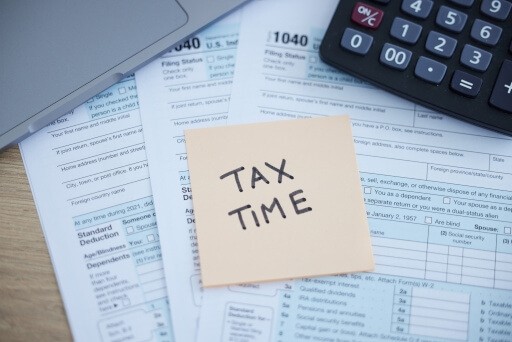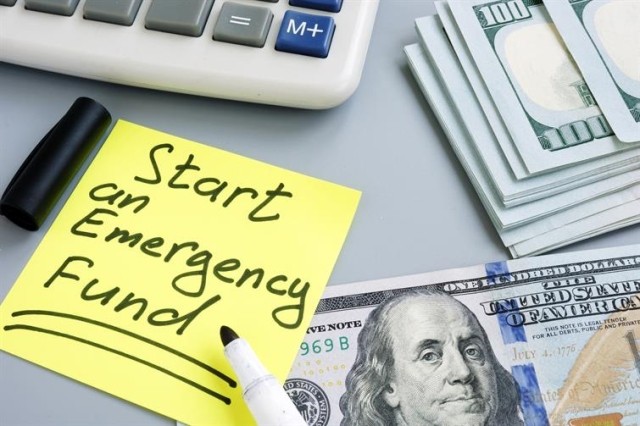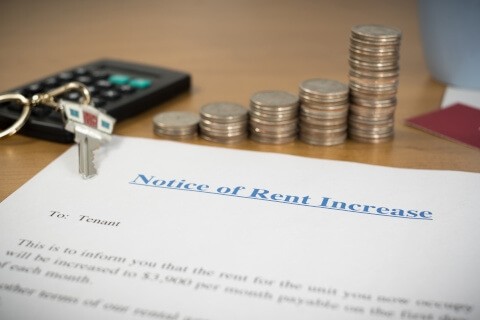Renting out your property is so much more than finding tenants and collecting monthly rent. Your property is going to need consistent upkeep to remain attractive to renters. Before you start looking for a new rental property to invest in, you should know what to expect in terms of costs – both upfront expenses and recurring costs. If you’re new to the world of property management, here are a few key rental property expenses to plan for. It could save you money in the long run.
How to Estimate Rental Property Expenses
Estimating the property expenses on a house or apartment is much more difficult than estimating rent. The average monthly rent of an area and the average time a rental sits on the market should give you a good idea of what you can charge and how quickly rentals turn over in the area. But getting a figure for rental property costs is harder to pin down.
Start by contacting local property management companies. Express your interest in hiring a property manager and they should be able to give you a good idea of prices and expenses for the area. Call the utility companies in the areas you’re shopping in, or for specific properties. Even if you won’t be paying the utilities, you can get a good idea for monthly utility costs and see where there may be a spike due to a faulty AC unit or something else.
If you use Apartments.com Rental Tools, you can use the Expense Tracker to keep an eye on these monthly costs too. You can also compare market rates with the Rent Comps Report.
The Mortgage and Closing Costs
The primary cost that every property owner should be prepared for is their monthly mortgage payment, but it doesn’t stop there. Make sure you have an idea of what you’ll pay in closing costs when you secure your new property. Closing costs cover things like title insurance, broker fees, and more. You don’t want to be staring down bill after bill before you’ve even been handed the keys. In some cases, you may be able to negotiate for the seller to pay your closing costs, but it’s not something to bank on. You can expect closing costs to be about two to five percent of the purchase price of your home.
Home Appraisal Fees
Your soon-to-be home must be assessed for its actual value before the mortgage company agrees on the amount of money to lend you. Sometimes your home appraisal fee may be covered in closing costs, but more often it isn’t. Getting a home appraised may run you from around $400 to $600, so be sure to factor this in too.
Home Inspection Costs
Not everyone likes surprises, and you don’t want to be surprised by some unseen issue with your new property. A home inspection is an absolute necessity to protect yourself from buying a property with serious problems like foundation and structural issues, plumbing leaks, electrical gremlins, and more. Most home inspections will cost you around $300 to $500, depending on the size of your home and where you live.
Permitting
In some states, you may be required to obtain a certain type of permit or business license if you plan on renting out your property. Make sure you check your state and local laws to be sure you’re following the proper ordinances, and budget for the application fees and time spent on getting your rental in the proper legal standing.
Budget for Landlord Insurance
Yes, you’ll need landlord insurance if you plan on renting out your property for an extended period of time. A typical homeowner’s insurance policy may cover a single room for rent in the house you already reside in, but if you’re renting out your entire property, make sure you have a dedicated landlord insurance policy to cover your property or properties.
Tenant Screening and Marketing Costs
A crucial part of finding top-notch tenants is conducting a background and credit check, but these types of services typically aren't free but they are with Apartments.com. Apartments.com makes it easy to screen tenants, get the information you need, and find a qualified renter fast. Unlike our competitors, who use various third-party resources to collect information, we partner with TransUnion to provide you with screening reports for evictions, credit, and criminal history. Another feature you’ll find only on Apartments.com is support for co-signers, guarantors, and co-applicants. If you need more information to make a decision, you can request supporting documents from potential tenants directly on our platform. Get all the information you need to find the right tenant quickly and easily.
Basic Property Maintenance
Now that we’ve covered what fees and costs you can expect in the infancy of your rental property, it’s time to discuss the recurring costs you can expect every year as you maintain your home. Basic property maintenance fees can range from lightbulbs, HVAC filters and maintenance, and yard upkeep, to clean-up between tenants. Basically, any cost associated with yearly consumables that you cover as a landlord should be accounted for in your yearly budget.
Emergency Property Costs
You could define emergency property costs as your AC unit dying in the middle of summer, your furnace cutting out in the dead of winter, or a burst pipe that needs to be dealt with urgently. These types of property emergencies are hard to anticipate, which is why it’s wise to build some buffer room into your budget. Be prepared to cover the cost of a new furnace or AC unit in the seasons in which they operate hardest, and make sure your tenants know to act quickly in the event of a plumbing emergency so that you can avoid as much water damage as possible.
Appliance Failures
As a landlord, it’s your duty to maintain the facilities that you’ve agreed to supply your tenants with. That means if the fridge goes out, the stove stops functioning, or the washer and dryer stop doing their jobs, you’ll have to get them fixed or replaced as soon as possible. Start by assessing the cost of every appliance in the house, taking care not to forget out-of-sight equipment like septic tanks and garbage disposals.
Pest Control
You may be wondering who will be responsible for pest control in your rental property. Pest control is almost always the responsibility of the landlord, unless you can prove your tenant is the cause. You can greatly decrease your chances of a major infestation by scheduling and budgeting for recurring pest control visits twice a year. Make sure your home is protected when the weather starts to turn cold and pests look for places to stay warm, and when the weather gets warmer and unwanted visitors look for a place to escape the sun and heat.
Legal Costs
This might come as a surprise to many landlords, but it might be time to start allotting for legal counsel in your budget. Nobody expects or wants troublesome tenants, but it does happen. Familiarize yourself with how small claims court works and have some sort of legal service in your contact list in case you need to handle excess damages. It’s better to be safe than sorry.
Owning a rental property isn’t easy. After all, it’s your job to maintain the livability of an entire home or apartment for someone else. But don’t worry—if you can budget and plan for the major rental costs that every homeowner faces, you’ll be in a fantastic spot to handle the rest.











